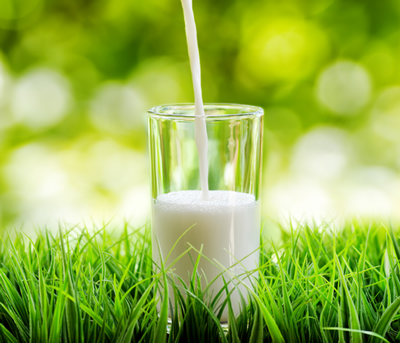Dairy foods play an important role in ‘breaking the obesity cycle’
- Like
- Digg
- Del
- Tumblr
- VKontakte
- Buffer
- Love This
- Odnoklassniki
- Meneame
- Blogger
- Amazon
- Yahoo Mail
- Gmail
- AOL
- Newsvine
- HackerNews
- Evernote
- MySpace
- Mail.ru
- Viadeo
- Line
- Comments
- Yummly
- SMS
- Viber
- Telegram
- Subscribe
- Skype
- Facebook Messenger
- Kakao
- LiveJournal
- Yammer
- Edgar
- Fintel
- Mix
- Instapaper
- Copy Link
Posted: 6 April 2017 | New Food | No comments yet
The consumption of dairy foods is an important part of a healthy diet and can play a role in ‘breaking the obesity cycle’, health and nutrition experts say.


CHANGING OF THE GUARD: Caroline Emond has taken over from Nico van Belzen
The consumption of dairy foods is an important part of a healthy diet and can play a role in ‘breaking the obesity cycle’, health and nutrition experts say.


The Dairy Council today published a monograph entitled: “Dairy and Obesity: What the Science Says” aimed at nutrition students and professionals. Leading figures from research, academia and the public health sector have analysed more than 100 publications, creating a comprehensive dossier to be made available to medical students and libraries across the UK.
Obesity is high on the public health agenda. Surveys and research show that obese children and teenagers have a considerable risk of becoming obese adults, and obese women are at greater risk of delivering large for birth babies. Therefore, interventions must be targeted throughout the life course, particularly at the key stages of pre-pregnancy and childhood.
Milk and dairy products are too often targeted in public health campaigns tackling obesity. While obesity reduction programmes are most often defined by dietary and nutritional advice, in recent years a number have focused more on wider family and social issues. Along with diet, physical activity performed in a social context (eg: with family members and in groups), and ensuring the habitual environment promotes healthy eating and physical activity, may have a greater impact on childhood obesity.
Speaking yesterday at an event in London to launch the new research document, Dr Anestis Dougkas, from the Institut Paul Bocuse in France, said: “I am delighted to be part of this team which attempts to shed some light on whether dairy intake leads to weight gain in children and adolescents. It can be reasonably concluded after reviewing all the data from both observational and intervention available human studies that milk and dairy consumption carries no risk to body composition or obesity and can be part of a healthy diet at this life stage.”
Dr Javier Gonzalez, from The University of Bath, focused on the potential mechanisms through which dairy can modulate fat balance. He said: “There are many potential mechanisms by which dairy can modulate fat balance and there is a good rationale for including dairy products in the diet to assist with fat loss whilst also maintaining lean body mass.”
The dossier covers two main strands of what the science says on dairy and obesity: evidence from human studies and an exploration of proposed mechanisms by which dairy may exert neutral or beneficial effects on body fatness. Evidence was drawn together by Professor Carolyn Summerbell, University of Durham, Dr Sheela Reddy, formerly of the Department of Health, Dr Suzanne Barr of Imperial College London and Dr Anestis Dougkas. The event to launch the monograph was chaired by registered dietitian, Catherine Collins.
Dr Anne Mullen, Director of Nutrition at The Dairy Council, said: “We are delighted to have a panel of experts from across different disciplines in nutrition come together and contribute to today’s event. The role of dairy in a healthy diet for life is well-substantiated, and the evidence supporting dairy for a healthy body weight is gathering strength.”









